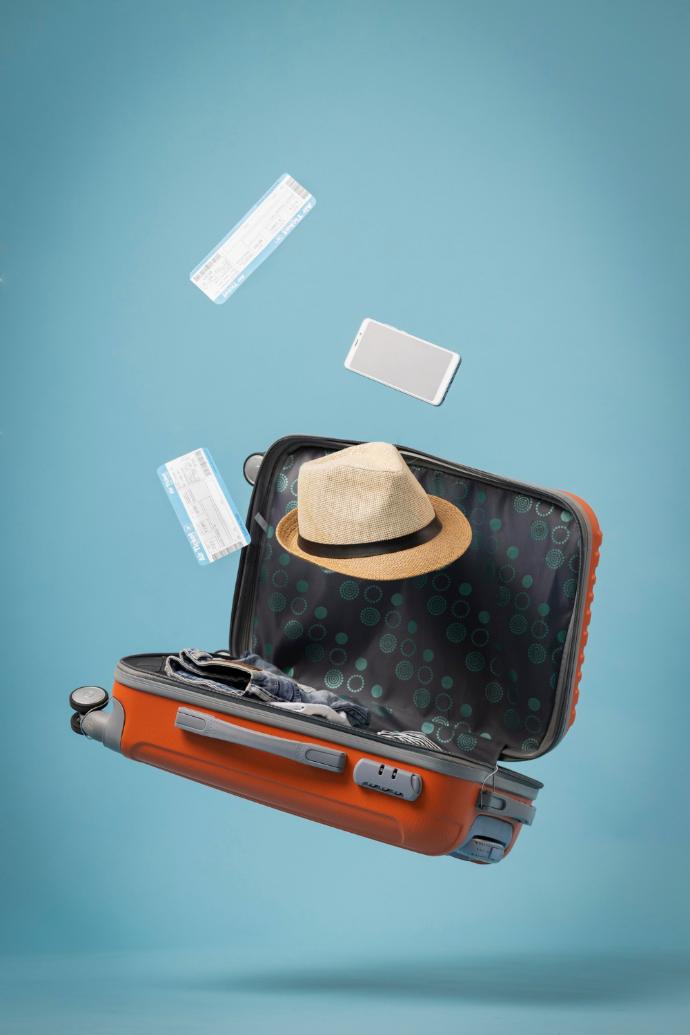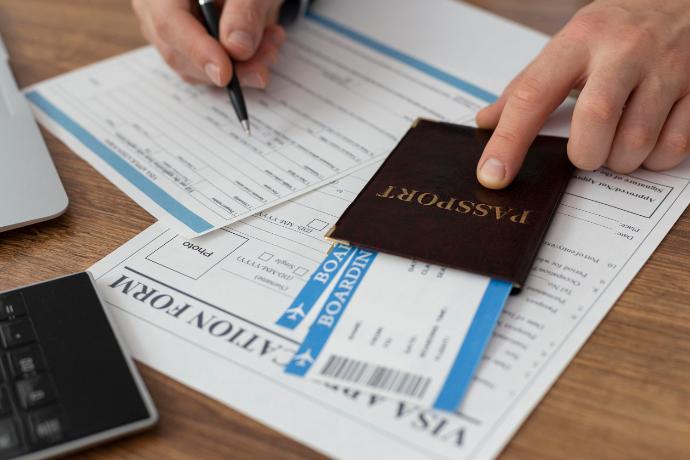International Students

WHY CHOOSE HORIZON SCHOOL ?
Horizon School's mission is to cultivate the leaders of tomorrow—individuals who are essential to the development of Tunisia and Africa as a whole.
Our goal is to train highly skilled specialists in various fields of Economics and Management, including Management, Marketing, Finance, Accounting, and Economics.
Horizon School aspires to become a leading African institution with an international reach, dedicated to recognizing and developing high-potential African talent that is competitive on a global scale.

PRE-REGISTRATION
Non-Tunisian candidates who wish to be admitted to Horizon School must complete a pre-registration application form. Enrollment is always for a full academic year, which includes both semesters of study. The registration process takes place in two steps: pre-registration depends on the available study and training opportunities at Horizon School, a sufficient understanding of the French language, and an evaluation of the academic record.
PRE-REGISTRATION APPLICATION
- Select your chosen program from the Horizon School informational brochures.
- Complete the form included in the program brochure, attaching all required documents.
- Your application will only be processed once all documents have been received.
REQUIRED DOCUMENTS
- A photocopy of the first two pages of your passport.
- A certified copy of your high school diploma (Baccalaureate).
- Certified copies of all transcripts and certificates of success for any university studies completed after the Baccalaureate (if applicable).
REGISTRATION
Pre-registration becomes final only after the payment of registration fees.
The annual tuition fee must be paid either in full or in installments, based on a prior signed agreement. Payments can be made through:
- Transfer via Western Union
- Bank transfer to the order of Horizon School


VISA APPLICATION
A visa is not required for nationals of certain foreign countries.
An international student is defined as anyone enrolled at the university who does not hold Tunisian citizenship or permanent residency, as defined by immigration law. This includes students in full-time academic programs as well as participants in exchange programs.
Upon arrival at the university, the international student must have a valid passport and an entry visa. Therefore, before your departure, you should consult the Tunisian consulate in your home country—or, if unavailable, a neighboring country with a Tunisian diplomatic mission.
Required documents for the visa application:
- 2 passport-sized photos
- 3 visa application forms provided by the Tunisian Consulate
- A photocopy of the first 3 pages of your passport
- A photocopy of your enrollment certificate and payment receipt
PREPARING FOR YOUR DEPARTURE
WHEN SHOULD YOU ARRIVE?
- It is strongly recommended to arrive at least one week before the start of classes. This will give you time to find accommodation and get familiar with your new environment. For detailed information on the academic calendar, please contact our administration.
- In any case, please note that delays in starting the semester's academic activities can seriously impact your chances of academic success.
CLIMATE AND CLOTHING
- Tunisia has a Mediterranean climate. Winters are generally mild, with occasional cool and rainy days. You should bring warm clothing, more suited to dealing with humidity than extreme cold.
- Summers are dry and often very hot, sometimes extending into late October. Light summer clothes, preferably made of cotton, are recommended.
AVERAGE TEMPERATURES:
- Winter: 10°C to 18°C
- Summer: 25°C to 35°C

UPON YOUR ARRIVAL
WELCOME TO THE UNIVERSITY
The faculty will arrange transportation for your child’s arrival, at your expense. All international students admitted to the university must report to the academic office immediately upon arrival in Sousse. Their class schedule will be provided once the admission formalities are completed and the original documents—along with certified copies previously sent by email or fax—are presented.
MANDATORY DOCUMENTS TO SUBMIT
- Completed pre-registration form
- Certified copy of the high school diploma (Baccalaureate)
- Certified copy of the Baccalaureate transcript
- Certified copies of all transcripts and certificates of success from any university studies after the Baccalaureate (if applicable)
- 4 recent passport-sized photos
- Photocopy of national identity card
- Photocopy of the first two pages of the passport (for international students)
- A medical certificate confirming the student is in good health and fit to live in a community setting
- Signed copy of the internal regulations

HOUSING
Many public transportation options are available near the university, allowing students to live in nearby or surrounding neighborhoods. The faculty can assist students in their housing search and provide guidance in this regard.
DORMITORY ACCOMMODATION FOR FEMALE STUDENTS
It is possible to secure accommodation for female students in private dormitories ahead of time. Room reservations can be made prior to arrival. To receive suggestions for dormitories located near the university, we invite you to contact us via online chat through Messenger or WhatsApp.
RENTING AN APARTMENT
There are several types of housing available, with prices varying depending on the neighborhood and apartment size:
- Studios, usually furnished, consisting of a single room, a small kitchenette, and a bathroom.
- Apartments, with two or three rooms, bathrooms, and a kitchen, which can be shared among multiple students.
- In addition to the monthly rent, utility bills (electricity, water, and gas) are typically extra.
- When renting, a lease agreement is usually signed between the tenant and the landlord. This contract, which outlines the rights and obligations of both parties, typically lasts for one year. A notarized copy of this lease from the local municipality is required to obtain your residence permit.

CURRENCY AND FUND TRANSFERS
The currency in Tunisia is the Tunisian dinar (TND), which is divided into 1000 millimes.
As a reference, 1 Euro is approximately equal to 3.26 dinars (subject to exchange rate fluctuations).
Upon arrival in Tunisia, you can exchange your foreign currency at bank counters located in the airport (open 7 days a week) or at banks in the city.
-
One way to receive funds in
Tunisia is to have bank transfers sent to an account opened in your name
at a bank in the city of Sousse.
- Major foreign banks have correspondent banks in Tunisia where you can receive funds.
-
However, since bank transfers
can take quite a long time (several weeks), it is advisable to bring
enough cash or traveler’s checks to cover your expenses for at least two
months.
-
Transfers via Western Union are faster but more expensive.


APPLYING FOR A RESIDENCE PERMIT (CARTE DE SÉJOUR)
The residence permit is a mandatory document that must be obtained within one month of your arrival in Tunisia, once you are settled.
The application should be submitted at the police station nearest to your place of residence.
REQUIRED DOCUMENTS:
- Proof of enrollment at the university and receipt of tuition payment
- Rental contract or, if staying in a dormitory, a residency certificate
- 2 passport-sized photos
- 2 fiscal stamps of 10 Tunisian dinars (DT), available at the local Recette des Finances (tax office)
- Proof of financial resources, such as a bank statement and/or a letter of financial support
This process is essential for legal residency in Tunisia during your studies.

COST OF LIVING
Foreign candidates wishing to study in Tunisia must ensure, before leaving their home country, that they have sufficient financial resources to cover their studies. Proof of adequate funds must be presented to Tunisian authorities to obtain the necessary residence permits.
Although it is difficult to determine an exact student budget, the following table provides an estimate of monthly expenses (excluding tuition fees):
- Shared accommodation (apartment shared with up to 4 people): Between 200 and 300 DT/month
- Food: Between 250 and 300 DT/month
- Individual studio apartment: Approximately 500 DT/month
- Local transportation: 100 DT/month
- Dormitory housing (for female students, subject to availability): Between 110 and 200 DT/month
- Books and supplies: 100 DT
This overview can help you plan your budget for studying in Tunisia.